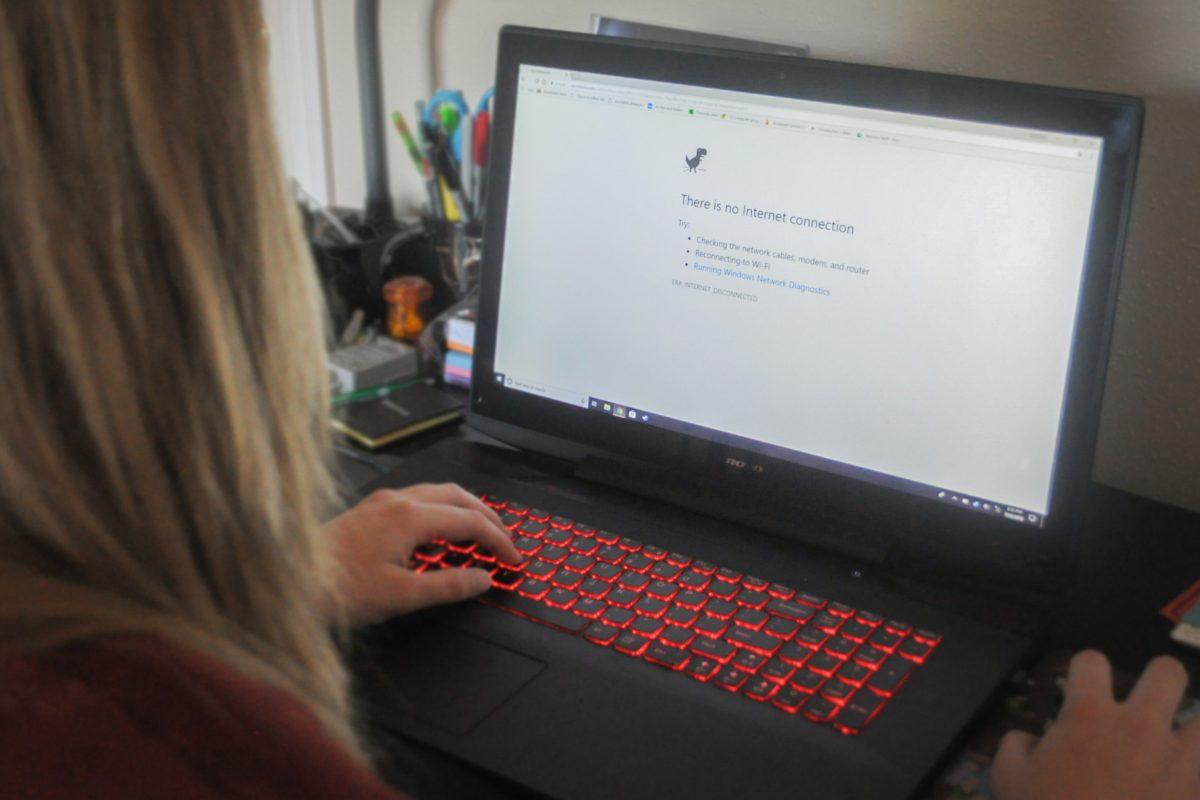For the third time in two years, campus housing has changed internet providers.
The most recent transition, from UTD-sponsored internet – CometNet and TemocNet – to Apogee, began in May and ended June 15. Director of Housing Operations Kevin Kwiatkowski said the move was a joint decision by University Housing, the Office of Information Technology and Student Affairs to provide speedier and more reliable internet to students living on campus.
The decision by University Housing to change internet providers in such a short period of time was the result of an initiative from the beginning of 2018 to provide better internet to on-campus residents. Kwiatkowski said while campus internet had been an improvement from Spectrum, the previous internet provider, he wanted to find a provider that would provide better services to students without adding costs to either the school or students.
“We felt that the Apogee service was going to be a better solution for all of our residents, one that would provide faster service, more connectivity to more devices and met some of the needs and feedbacks we had received,” Kwiatkowski said. “Ultimately we were able to do that in a way that met our needs within the financial part of our job and obviously then met the needs of our residents.”
The base plan offered to residents claims internet speeds of up to 100 MB per second and includes internet access for seven registered devices. Residents can pay an additional $100 for speeds up to 200 MB per second and access for 14 devices.
Kwiatkowski said University Housing will gather resident feedback on the service provider transition through a series of surveys.
ATEC junior Kirsten Baker has been living in Phase 3 of University Village for nearly a year after having spent her freshman year in Residence Hall South. As one of the several community assistants who accompanied Apogee vendors in installing the new modems during the start of the summer, she also had the opportunity to discuss the internet changes with the vendors themselves. However, when she compared her internet before and after the change, she said she does not believe the transition has made a difference.
“I was with the Apogee people when they were installing it, so I talked to them a little bit, and they told me it would be faster, and from my experience so far, I don’t feel that it has. I feel that it has been slower,” Baker said “Our internet, I feel like, was pretty good… I feel like it was fairly fast for everybody.”
Baker said she also ran into issues with the new method for registering devices in order to use the internet. To connect to the new Wi-Fi service, named “ResNet,” residents must connect their devices – limited to seven under the base plan – directly through the Apogee website. Baker said the difficulty in registering guests, as well as the registration limit, does not bode well for residents.
“I don’t know how guests are supposed to use the internet now… I don’t know how they’re supposed to actually hook up to it, if they don’t already have a ResNet account,” Baker said. “We didn’t have to register anything before… so I feel like this is a little bit of a scam and I really don’t understand why they needed to change the internet because I thought it was doing just fine before and I am very worried about this upcoming year.”
Sandra Mihail, a biology junior, agreed with Baker’s sentiments. As well as finding difficulties connecting guests to the internet, she said she feels the change has not been an improvement.
“I’ve definitely had more problems with (the internet) now. First of all, the signup process is extremely annoying, because you can only have seven devices… I still cannot figure out how to get my printer on the Wi-Fi,” Mihail said. “For having people over, it really sucks. I’ve actually had more problems with the new internet than I’ve had with CometNet. I think it’s slower and it also is very spotty.”
Kwiatkowski said he believes the new service provider will last, as there is a three-year contract in place with Apogee. He said that not only is the school achieving all of its intended goals in terms of internet speed, but students seem to be happy with the change as well.
“The university housing office is pleased with the transition and with the services that are being provided right now and with the feedback we have received,” Kwiatkowski said. “We have solicited and listened for feedback from residents and aside from a few minor issues … no general concerns from residents.”

















